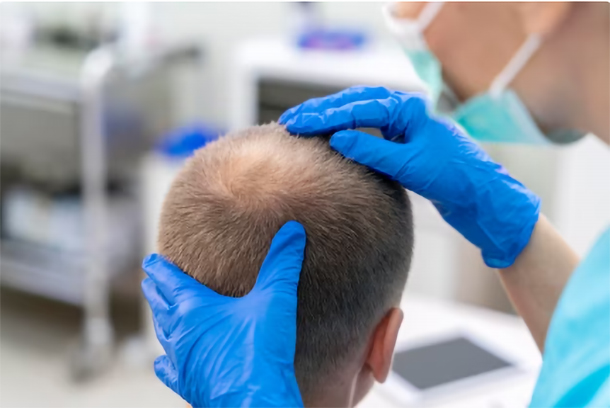Trichology
Trichology is the branch of dermatology that focuses on the study of the scalp and hair, specifically concerning their health and disorders. Trichologists are specialists who diagnose and treat various conditions related to the hair and scalp, including hair loss (alopecia), scalp conditions, and problems with hair growth.
Here are some key points about trichology:
Trichologist’s role: Trichologists are experts who specialize in the diagnosis, treatment, and management of hair and scalp disorders. They assess patients with hair and scalp issues, examine the condition of the hair and scalp, and provide personalized advice and treatment plans.
Conditions treated: Trichologists can address a wide range of hair and scalp conditions, including but not limited to:
Alopecia: Different types of hair loss, such as androgenetic alopecia (pattern hair loss), alopecia areata, or traction alopecia.
Scalp conditions: Issues like dandruff, seborrheic dermatitis, psoriasis, scalp infections, or folliculitis.
Hair and scalp damage: Problems caused by excessive styling, chemical treatments, or environmental factors.
Hair shaft disorders: Conditions affecting the structure and quality of the hair, such as trichorrhexis nodosa or trichorrhexis invaginata.
Excessive hair shedding: Assessing the causes of excessive shedding or telogen effluvium.
Diagnostic methods: Trichologists use various tools and techniques to evaluate the condition of the hair and scalp. This may involve visual examination, analysis of the scalp and hair, microscopic examination, and in some cases, blood tests or scalp biopsies.
Treatment approaches: Trichologists employ different treatment methods based on the specific condition and individual needs. These may include:
Lifestyle modifications: Guidance on diet, stress management, and hair care routines.
Topical treatments: Recommending specific shampoos, conditioners, or scalp treatments.
Medications: Prescribing medications like minoxidil or finasteride for hair loss conditions.
Laser therapy: Low-level laser therapy (LLLT) to stimulate hair growth.
Scalp treatments: In-office procedures like scalp massages, micro needling, or PRP (platelet-rich plasma) therapy.
Referral to specialists: If necessary, trichologists may refer patients to other medical professionals, such as dermatologists or endocrinologists, for further evaluation and treatment.
Education and certification: Trichologists typically undergo specialized training and certification programs to gain expertise in the field. While qualifications may vary by country, many trichologists hold certifications from recognized trichology associations or organizations.
If you have concerns about your hair or scalp, consulting a trichologist can be beneficial. They can provide a thorough evaluation, diagnosis, and personalized treatment plan to address your specific needs.
Specialists
At Center For Hair Transplant USA, we understand that hair restoration is a unique journey for each individual. Our Specialist Hair Transplant team is dedicated to providing you with personalized solutions tailored to your specific needs and goals. With years of experience and expertise in the field, our specialists are here to guide you through every step of your hair transplant journey, ensuring exceptional results and your utmost satisfaction.




